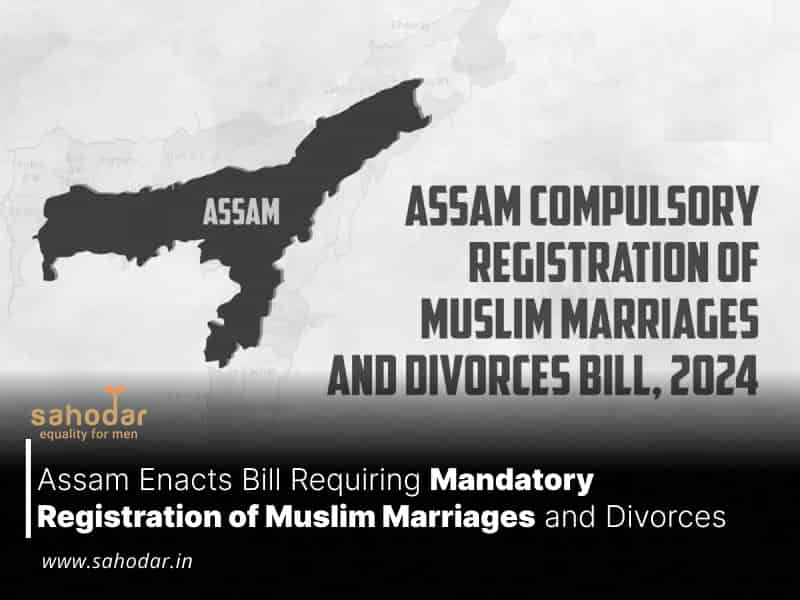The Bill was purportedly introduced to prevent child marriage, non-consensual marriages and polygamy among Muslims in the State.
The Assam Legislative Assembly passed the Assam Compulsory Registration of Muslim Marriages and Divorces Bill, 2024, on Thursday.
This Bill makes it mandatory for Muslims in the State to register their marriages and divorces, aiming to protect the rights of married Muslim men and women.
Assam Chief Minister Himanta Biswa Sarma called the day “historic” for the State.
“This Act will now make it mandatory to register marriages with the Govt and cannot contravene the legal age of marriage of 18 years for girls and 21 years for boys. It will also act as a strict deterrent against teenage pregnancy and improve overall growth of our girls,” he tweeted on X.
According to the Bill’s statement of objects and reasons, the legislation was introduced to:
- Prevent child marriages
- Stop non-consensual marriages
- Address polygamy
- Ensure married women can claim their rights, such as maintenance and the right to live in the matrimonial home
- Enable widows to claim inheritance rights after their husbands’ deaths
- Discourage men from abandoning their wives
- Strengthen the institution of marriage.
The Bill aims to end the traditional Qazi system, where clerics used to register Muslim marriages. Now, all marriages will be registered with the government.
According to Section 3, women must be at least 18 years old, and men must be at least 21 years old at the time of marriage.
When a marriage takes place or is planned, the couple must inform the district’s Marriage and Divorce Registrar.
Anyone can object to the marriage within 30 days of the notice being given. If an objection is raised, the Marriage and Divorce Registrar will not register the marriage until the matter is investigated or the objection is withdrawn by the person who raised it.
If either party is dissatisfied with the Registrar’s decision, they can appeal to the District Registrar and then to the Registrar General of Marriage.
The Marriage and Divorce Registrar has broad discretion to refuse marriage registration, as long as they provide written reasons.
Section 12 of the Bill details the divorce registration process, which requires an application to be submitted to the registrar. Section 18 outlines penalties of up to two years in jail and/or a ₹10,000 fine for issuing false certificates. Those who register a marriage in violation of the Act face up to one year in jail and/or a ₹50,000 fine.
Section 25 gives the State government the power to set rules for the registration process.
The new Bill replaces the Assam Moslem Marriages and Divorces Registration Act of 1935, which was repealed by the Sarma-led BJP government, citing that it encouraged the practice of child marriage.
The repeal Bill was introduced in the State Assembly on August 22.

